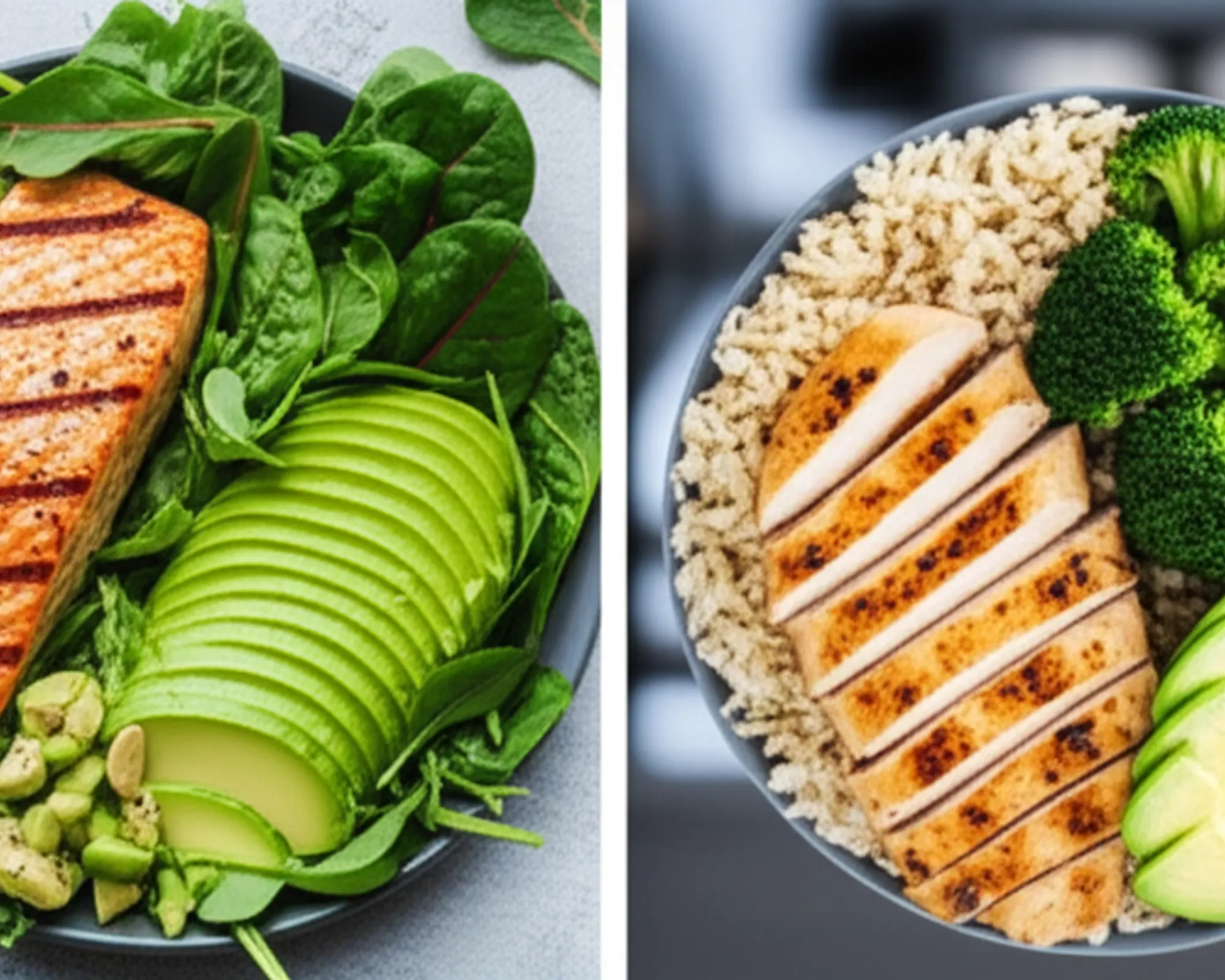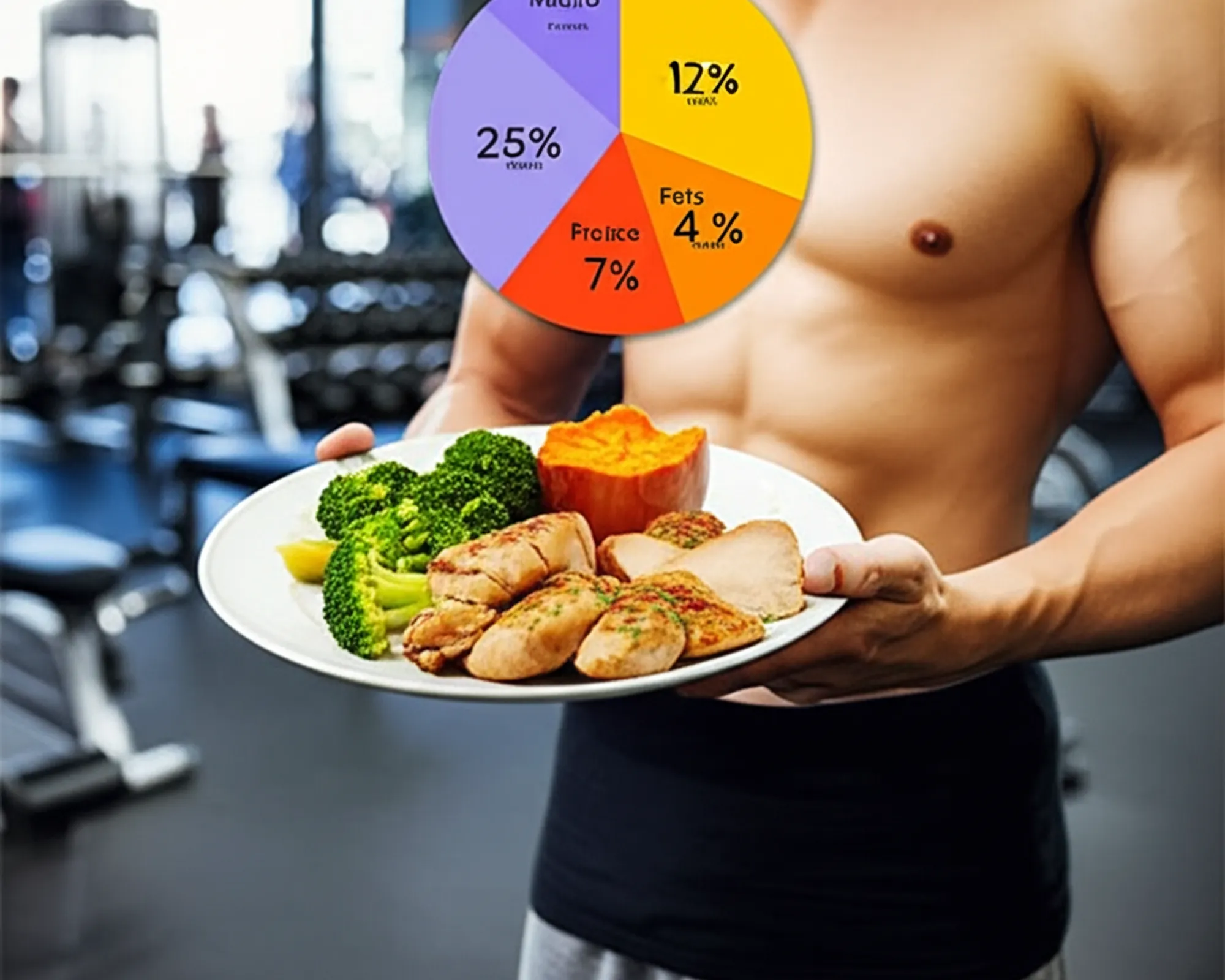How Many Grams of Protein Do You Really Need to Build Muscle?

How Many Grams of Protein Do You Really Need to Build Muscle?
In the world of fitness and muscle building, few nutrients spark as much discussion and debate as protein. It's often hailed as the cornerstone of muscle growth, and for good reason. But how much do you really need? The answer isn't a simple one-size-fits-all number, and understanding the nuances can make a significant difference in your progress.
Protein is an essential macronutrient, meaning your body needs it in large amounts to function properly. It's composed of amino acids, which are often referred to as the "building blocks" of life. When you engage in resistance training, you create microscopic tears in your muscle fibers. Protein then steps in to repair these tears, leading to stronger, larger muscles – a process known as muscle protein synthesis (MPS). Without adequate protein, your body struggles to repair and rebuild, hindering your muscle growth potential and recovery.
The Science Behind Protein and Muscle Growth
Every time you lift weights, your muscles undergo stress. This stress, while necessary for growth, also causes a breakdown of muscle proteins. To overcome this breakdown and promote growth, your body needs a constant supply of amino acids. These amino acids are used to synthesize new muscle proteins, effectively repairing the damage and building new muscle tissue. This delicate balance between muscle protein breakdown (MPB) and muscle protein synthesis (MPS) dictates whether you gain or lose muscle mass. A positive net protein balance, where MPS exceeds MPB, is essential for muscle hypertrophy.
Of the 20 amino acids, nine are considered essential (EAAs) because your body cannot produce them; you must obtain them through your diet. Branched-chain amino acids (BCAAs) – leucine, isoleucine, and valine – are particularly important for muscle protein synthesis, with leucine often cited as the primary trigger.
General Recommendations: Beyond the RDA
The Recommended Dietary Allowance (RDA) for protein is 0.8 grams per kilogram of body weight (0.36 grams per pound) for sedentary adults. While this amount is sufficient to prevent deficiency, it's generally considered inadequate for individuals actively trying to build muscle or maintain muscle mass, especially those engaging in regular strength training.
For individuals looking to maximize muscle gain, research consistently points towards a higher intake. A widely accepted range for active individuals, particularly those involved in resistance training, is between 1.6 and 2.2 grams of protein per kilogram of body weight (approximately 0.7 to 1.0 gram per pound). Some studies even suggest benefits up to 2.5-3.0 g/kg for advanced lifters or during calorie-restricted phases to preserve muscle.
It's important to base these calculations on your lean body mass rather than your total body weight, especially if you carry a significant amount of body fat. For example, a 100 kg person with 30% body fat might need less protein than a 100 kg person with 10% body fat, if both are aiming for similar muscle mass. However, using total body weight is often a simpler and still effective starting point for most.
Factors Influencing Your Individual Protein Needs
While general guidelines are helpful, your exact protein requirements can vary significantly based on several personal factors:
Body Composition Goals:
Are you aiming for maximal muscle hypertrophy, or are you primarily focused on strength gains without significant size? Your specific goal can subtly influence your protein strategy.
Experience Level:
Novice lifters often experience "newbie gains" and can build muscle effectively with slightly lower protein intakes. As you become more advanced, muscle growth can slow, and optimizing all variables, including protein, becomes more critical.
Age:
As we age, our bodies experience "anabolic resistance," meaning they become less responsive to anabolic stimuli like protein. Older adults (typically over 50-60) may require a higher protein intake, sometimes up to 1.2-1.5 g/kg even for maintaining muscle, and potentially more for building it, to counteract this effect and prevent sarcopenia (age-related muscle loss).
Calorie Deficit vs. Surplus:
If you're in a calorie surplus (eating more calories than you burn) to gain weight and muscle, your protein needs might be on the lower end of the recommended range (e.g., 1.6-1.8 g/kg). However, if you're in a calorie deficit (eating fewer calories than you burn) to lose fat while preserving muscle, a higher protein intake (e.g., 2.0-2.5 g/kg or even higher) is crucial. Protein helps maintain satiety and prevent muscle loss during periods of restricted calories.
Training Intensity and Volume:
The more intensely and frequently you train, the more stress you place on your muscles, and consequently, the greater your protein needs for repair and recovery. High-volume, high-frequency strength training demands a higher protein intake than light, infrequent workouts.
Quality Matters: Types of Protein and Sources
Not all protein sources are created equal. The "quality" of protein is often determined by its amino acid profile, particularly its content of essential amino acids. Complete proteins contain all nine essential amino acids in sufficient quantities. Animal-based proteins (meat, poultry, fish, eggs, dairy) are excellent sources of complete protein.
Plant-based proteins (legumes, grains, nuts, seeds, vegetables) are often incomplete, meaning they lack one or more essential amino acids. However, by combining different plant sources throughout the day (e.g., rice and beans), vegans and vegetarians can easily obtain all essential amino acids. Protein supplements, such as whey, casein, soy, and pea protein, can also be convenient and effective ways to meet your daily targets, especially around workouts.
Timing and Distribution: Maximizing Muscle Protein Synthesis
While total daily protein intake is the most critical factor, how you distribute that protein throughout the day can also play a role. Spreading your protein intake across 3-5 meals, with each meal containing 20-40 grams of protein, appears to be optimal for maximizing muscle protein synthesis. This approach ensures a consistent supply of amino acids to your muscles.
The "anabolic window" – the idea that you must consume protein immediately after a workout – has been largely debunked as an overly strict concept. While consuming protein within a few hours post-workout is beneficial, the immediate rush is less critical than your total daily intake. However, consuming protein before and after training does contribute to overall daily protein goals and can aid recovery.
Common Misconceptions and Risks
One common concern is that high protein intake can harm your kidneys. For healthy individuals with normal kidney function, there is no scientific evidence to suggest that a high protein diet, even up to 2.2 g/kg (and sometimes higher), poses a risk to kidney health. However, individuals with pre-existing kidney conditions should consult a healthcare professional before significantly increasing their protein intake.
Another misconception is that more protein always equals more muscle. Beyond a certain point, consuming excessive protein won't lead to additional muscle growth; instead, the excess will simply be used for energy or converted to glucose and stored as fat, just like any other macronutrient.
Conclusion: Consistency is Key
Determining your optimal protein intake for muscle building involves considering several factors, including your body weight, activity level, age, and goals. While 1.6 to 2.2 grams per kilogram of body weight is a solid target for most active individuals, listening to your body and adjusting as needed is paramount. Focus on consuming high-quality protein sources consistently throughout the day, and combine this with effective resistance training, adequate sleep, and overall balanced nutrition. Protein is indeed vital for muscle growth, but it's one piece of a larger, holistic puzzle for achieving your fitness aspirations.


